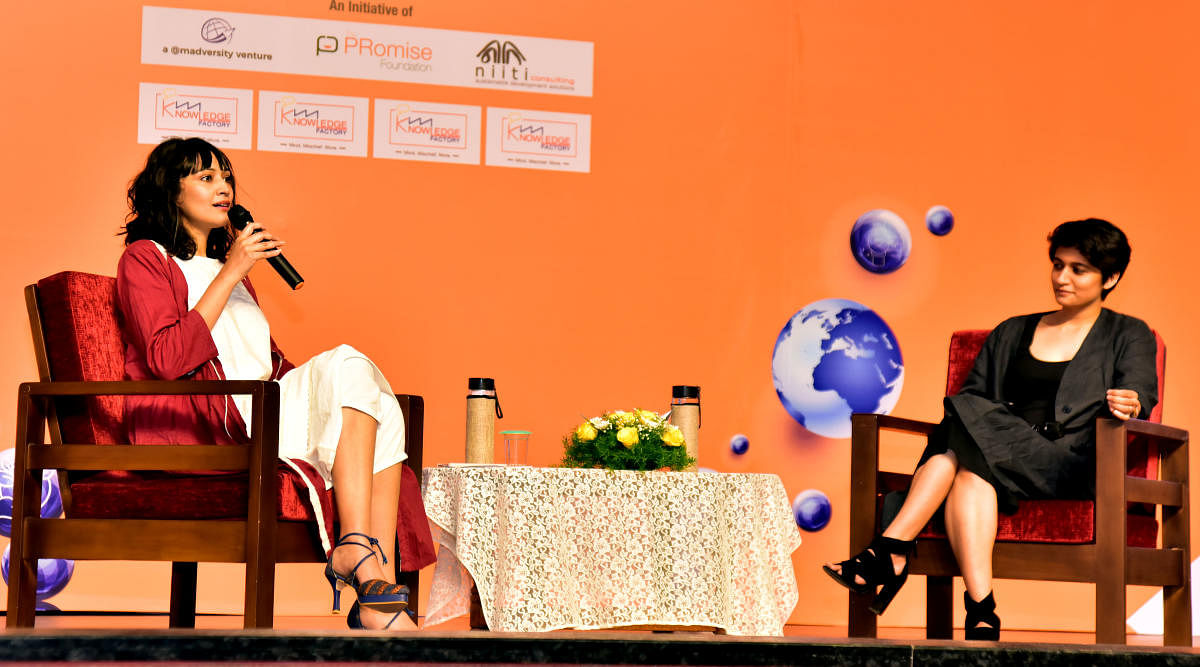
Kriti Tula, founder of India’s first zero waste fashion brand ‘Doodlage’, and supermodel and actor Dipannita Sharma favoured contribution to sustainable fashion.
Sharma felt the need for de-cluttering from being a hoarder of clothes during the second session on ‘Green Chic or Mean Trick?’ at the fourth edition of Knowledge Factory organised at St Agnes College on Friday.
“I have been feeling lighter as an individual after I started de-cluttering and how we are not impacting the environment,” she stressed.
“As a model and celebrity, we are expected not to repeat an outfit. Borrowing from a designer is a great way to balance the expectation. If you love the borrowed outfit, then you can buy and wear it,” Sharma suggested.
Fashion industry is the second most polluting industry in the world, Kriti Tula said and added, “Pick more versatile products. There is a need to optimise each piece of cloth. Donate or swap those that are no longer of use.”
Tula also said, “We source post-cutting fabrics and garments, defected fabrics and post-stitching wastage. We create many outfits, accessories and home products using it. The extreme leftovers are processed to make paper for package and branding material.”
She added that it is the challenge for a creator is upscaling. “Collaborating with post-production waste fabrics and still make it fashionable is necessary. It is not just the consumer who learns, it is the producer too who goes through similar experience regarding sustainable fashion. Knowing how your shirt impacts what you eat and the air you breathe isn’t at the top of the mind of a consumer,” she stressed.